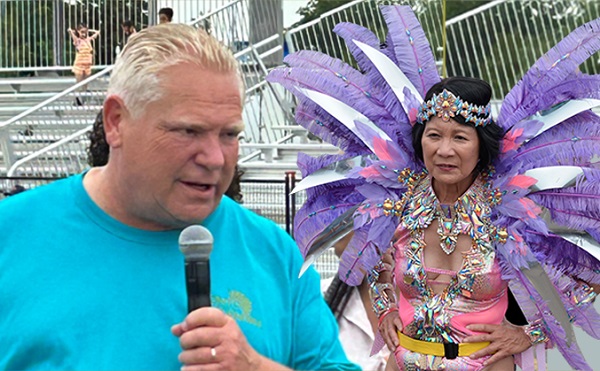From The Center Square
By Casey Harper
A close look at the Department of Education’s grant funding shows that millions of taxpayer dollars are being spent at universities to train social workers to push Diversity, Equity and Inclusion at K-12 schools.
Now that President Donald Trump has banned that kind of funding, schools will have to find workarounds or drop the programs altogether.
The parental rights group, Parents Defending Education, released a report this week showing over $100 million in Education Department “social work” awards for colleges and universities that has increasingly been used to push DEI ideas into the classroom.
“On the surface, these federal grants were given out to help mitigate mental health issues; in practice, the grant funds went to support programs that explicitly advance social justice ideologies based in critical race theory that include anti-racism and DEI,” the report said. “In fact, the vast majority of university social work programs that we reviewed prioritize anti-racism practices and social justice activism.”
PDE said it found 33 colleges and universities with these kinds of programs, 25 of which were receiving taxpayer-funded grants.
A quick look at the program materials show they train social workers how to push ideas related to “anti-racist and anti-oppressive social work” and “racial capitalism, white supremacy, and structural and institutional racism,” among other related ideas, often in K-12 schools.
One federal grant to Nazareth University in New York supports its program with the stated goal “to promote diversity, equity, inclusion, and belonging and address bias and oppression.”
Another at Miami University in Ohio promises that students will “advance human rights and social, racial economic, and environmental justice” and “engage in anti-racism, diversity, equity, and inclusion… in practice.”
Most of the federal funding for these kinds of programs comes from the Department of Education’s Mental Health Service Professional Demonstration Grant Program or the School-Based Mental Health Services Grant Program, according to PDE.
From the University of Alaska Anchorage social work program “engaging in anti-racist and anti-oppressive social work” to a California State University, Fresno course teaching students how “definitions of race and whiteness have been used to disenfranchise people of color,” social work has seemingly made a fundamental shift in its focus in recent years.
Proponents of these programs say social workers need to be equipped to deal with complex issues facing students, which often include racial factors.
They argue systemic racism is a key factor in mental health, while critics say that emphasis reveals an ideological bias.
A quick look at the website for the National Association of Social Workers, which boasts 120,000 members, shows a plea to stop “Trump administration policies” accompanied by a picture of several raised fists, a gesture often linked to political activism.
“The Trump administration is bent on repealing or ignoring just about every law that gets in the way of its drive to remake the federal government.”
Anthony Estreet, CEO of the National Association of Social Workers said in an editorial in the liberal outlet, Salon.
Estreet goes on to attack Trump’s stance on deportations, transgenderism, cuts to the federal government.
“But the administration can’t repeal the law of unintended consequences,” he added. “And plenty of people outside the executive branch — particularly health care providers, mental health professionals, and social workers — will have to clean up the messes the president’s directives are creating.”
The PDE report comes as President Donald Trump signed an executive order to dismantle much of the Department of Education while still performing the critical programs. Trump’s decision raises a question of which parts of that federal agency may be extraneous.
Given Trump’s other executive order banning federal promotion of DEI, grants like those uncovered by PDE are unlikely to keep going out the door.
“School social workers did not use to spend years marinating in highly ideological courses about privilege, oppression, racial capitalism, and white supremacy, but today, this is common practice in public and private universities,” Erika Sanzi, Director of Outreach for Parents Defending Education, said in a statement. “While this is obviously disturbing, the fact that the U.S. Department of Education has been funding it since 2021 is a major red flag. How can a social worker help students become the best version of themselves if they see them as oppressors with unearned privilege?”
Trump’s executive order may push the social work DEI programs to become less obvious, avoiding certain radioactive phrases but pursuing many of the same goals.
Many of these schools now have a choice: Drop the DEI social work model altogether or go underground.
How these operations pivot with the ban on DEI funding remains to be seen.























